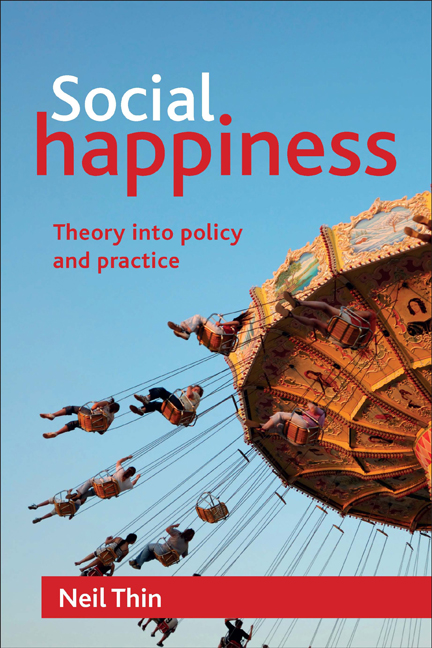Nine - Love: fighting philophobia around the world
Published online by Cambridge University Press: 01 September 2022
Summary
The day will come when, after harnessing space, the winds, the tides, gravitation, we shall harness for God the energies of love. And, on that day, for the second time in the history of the world, man will have discovered fire. (Pierre Teilhard de Chardin)
Is love an art? Then it requires knowledge and effort. (Erich Fromm, The art of love)
The new intrinsic value of intimacy
Social happiness begins with love. Like happiness, love too has been ignored by most modern social scientists. The strong dyadic bonds of parental and romantic love are the prototypes. In their different ways, both matter a great deal for happiness outcomes, yet neither is easy to weave into the planned pursuit of happiness. In the initial euphoria of bringing a child into the world, how many new parents appraise realistically the enormous personal sacrifices that this will entail? In the throes of romantic passion, who pauses to ponder the realities ahead: the lifetime spent in agonising debates over whether the toilet seat should be left up or down? Letting young people be guided by romantic love in making their choice of lifelong partner is a modern cultural experiment that most of our ancestors since the Neolithic Revolution would have found absurd. Everywhere in the world, people are still struggling to come to terms with its revolutionary implications.
Sociologist Anthony Giddens (1992) has argued that the development of the ‘pure relationship’ – essentially love for love's sake, involving appreciation of one another as unique individuals and based on the unqualified trust that can be learned through child–parent relationships – is a late modern development. Optimism about improving the quality of close dyadic relationships, and liberating them from instrumentalist exploitation, lies at the core of the Enlightenment project of promoting happiness for happiness’ sake. It is an ongoing global experiment with very uncertain outcomes: ‘No one knows how the ever growing demands for family intimacy can be linked to the new demands for the freedom and self-realization of men, women and children’ (Beck and Beck-Gernsheim, 2002, pp 27–8).
- Type
- Chapter
- Information
- Social HappinessTheory into Policy and Practice, pp. 119 - 134Publisher: Bristol University PressPrint publication year: 2012



